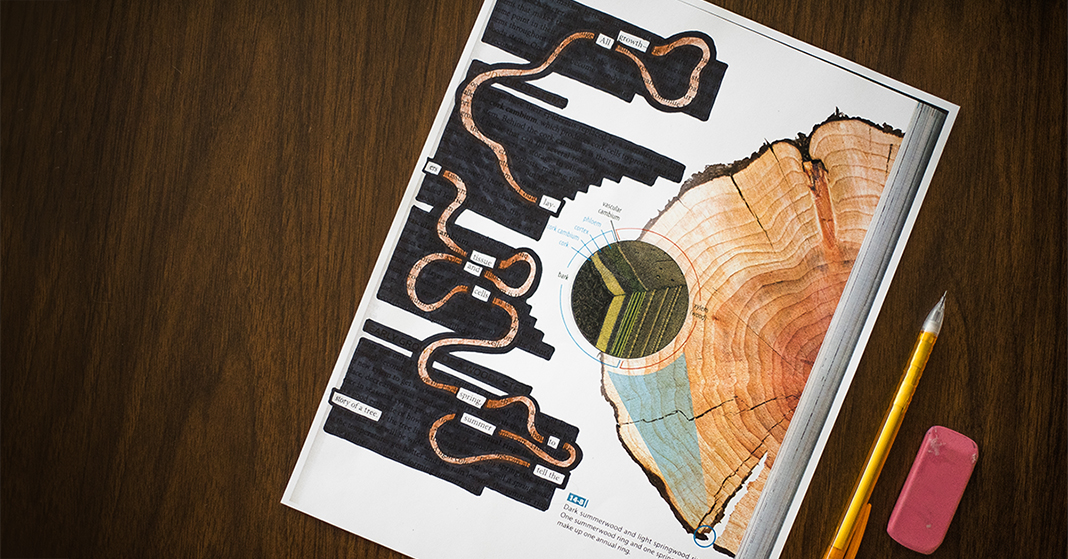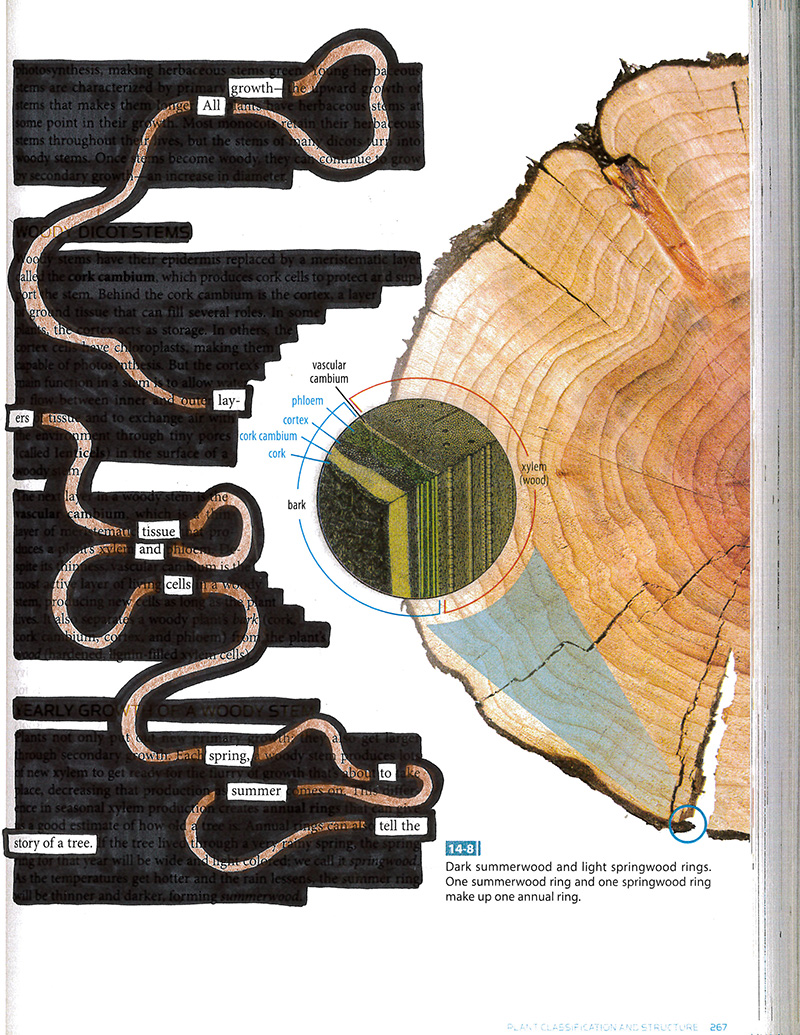
Teaching elementary poetry writing can be enjoyable, especially when working with sensory poems or even simple shape poems. And there are hundreds of engaging poems for elementary ages that can help kids get interested in poetry. One of my favorites is “I Wave Good-bye When Butter Flies” by Jack Prelutsky. But what about teaching high school poetry writing? While sensory poems and shape poems are good for any age, many high schoolers are capable of more challenging activities. A blackout poem might be just the kind of poetry exercise your high schooler will find intriguing.
What Is a Blackout Poem?
Blackout poetry is made by highlighting certain words on a published page and then marking out all the rest. You can use cheap thrift-store books you don’t want to keep or photocopied pages of books you already have. You could also use magazine or newspaper pages. I thought it might be a good challenge to make a blackout poem from a page in the BJU Press Biology textbook—with photocopies, of course.
 How Do You Make a Blackout Poem?
How Do You Make a Blackout Poem?
Pick a book, magazine article, or newspaper story. Any long text will work, but keep in mind that what you choose will affect the words your high schooler will have to work with. Choose material that uses descriptive language and strong verbs. And it helps if it’s about a topic he enjoys.
- Show him the example and explain that the goal is to “find” a poem within the text, selecting words from the text that can be connected together to make a poem.
- Let your teen pick a page that he thinks will give him enough material to create a poem.
- He should read his page several times. He’ll need to be familiar with the content in order to decide what he can do with the words. If he finds that his page won’t work, he should choose a new one.
- Using a pencil, he should circle or underline all the words that may be useful in crafting his poem. Knowing where conjunctions and strong verbs are will also help him in shaping the poem.
- Once he’s chosen his words, he should black out all remaining words on the page with a marker. Blackout poems are most often read from top to bottom and from left to right. He may need to get creative in order to clearly connect his words.
Why Blackout Poetry?
Since your teen will be creating a poem out of words he already has, this activity should work well with even the most reluctant of poets. He won’t have to come up with the ideas himself, and he can even choose a page from one of his favorite books.
By creating a blackout poem, your high schooler will learn to create a poem using just the words he has available. He may be surprised by the beauty of his final product, even if he’s skeptical at first.